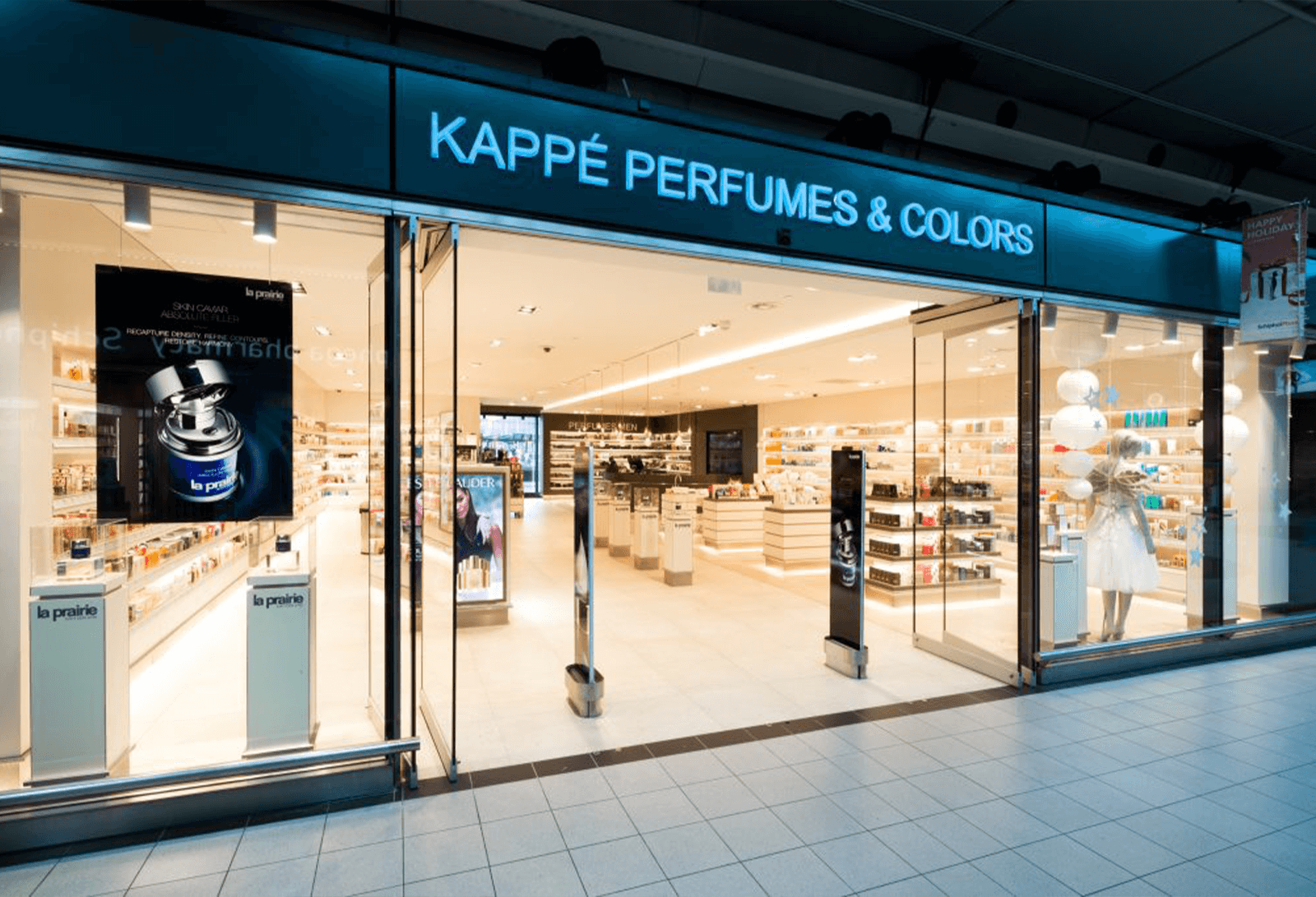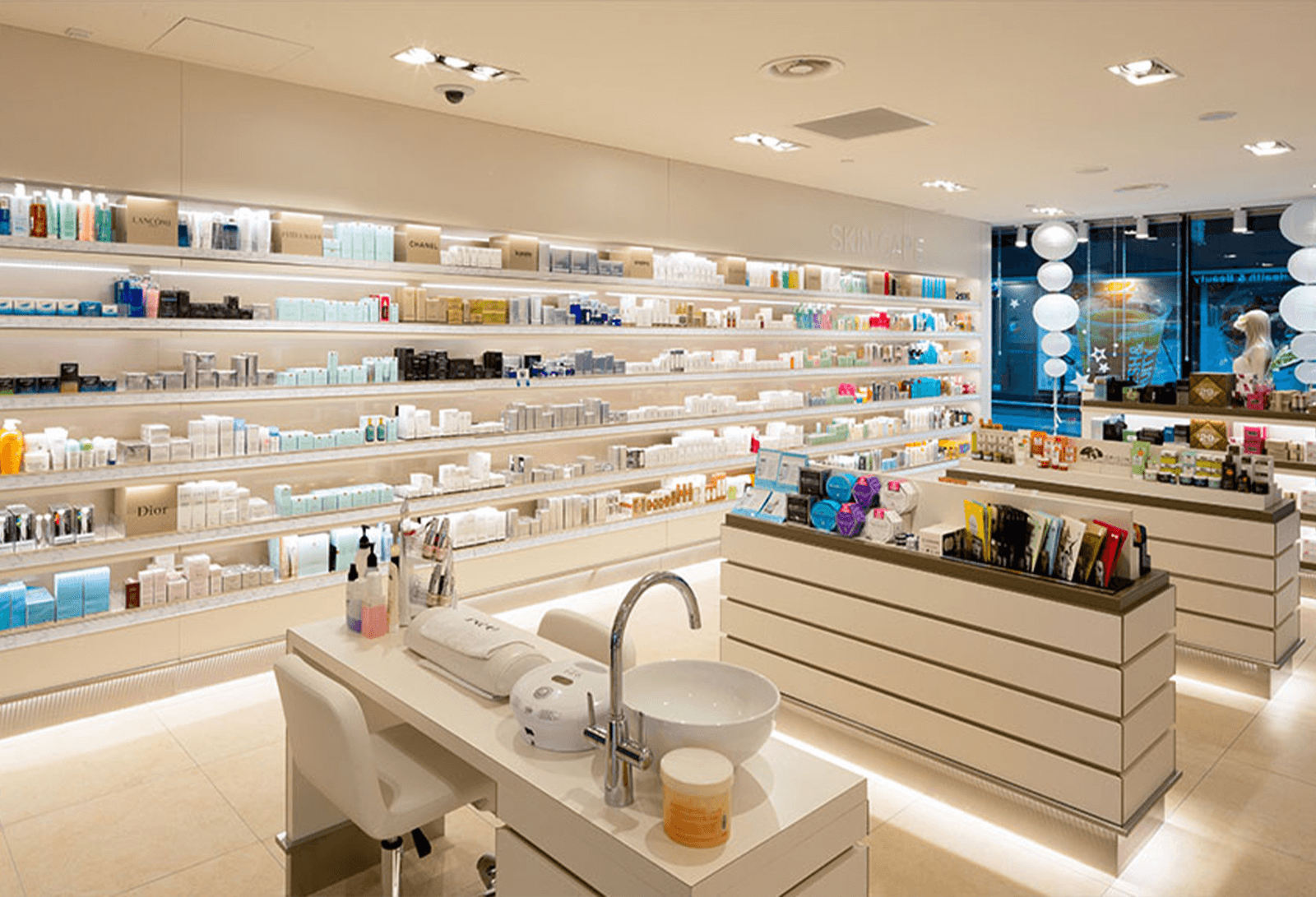Amsterdam Schiphol has reached an agreement that will see it take a 100% stake in Kappé, its long-time beauty retailer, from January 1, 2024. The move gives the airport operator full control of one of its most prized commercial revenue streams. The cost of the acquisition was not disclosed.
Kappé—a family business employing more than 300 staff—has been operating the perfume, cosmetics, pharmacy, and sunglasses shops at one of Europe’s busiest hub airports since 1950. The deal is subject to approval by The Netherlands Authority for Consumers and Markets and the works councils of both Kappé and Schiphol.
In total, Kappé runs 15 shops at the Dutch gateway. Arthur Reijnhart, Director of Commercial at Schiphol described the retailer as “part of Schiphol’s heritage” adding, “With this acquisition, we want to strengthen and update the stores.” The airport did not divulge detailed development plans but said that it would “continue to invest in the shops and look to the future with new stores and concepts.”
“Professionalization” Program
Kappé’s owner Jacques Parson—who has been at the helm of the business for 36 years—paid tribute to his team over this time, saying, “To me, the employees have always been, and still are, key. Their hard work and loyalty have made Kappé what it is today: an essential household name at Schiphol. I am pleased that Schiphol will secure the future of employees and the company.”
It appears that an assurance has been made to keep all the staff in their jobs. The airport said that “continuity for the shops and for employees is key” although it did not say for how long. In a statement, Schiphol also talked about the “professionalization” of Kappé and cooperation with commercial partners.
The airport operator added, “In the long term, the acquisition will allow Schiphol to flexibly allocate the available square meters, with room for innovation and an improved shopping experience for passengers.”
Schiphol Airport operates a major joint venture with German travel retailer Gebr. Heinemann called Schiphol Airport Retail (SAR), which runs the liquor, tobacco, and confectionery categories at the airport. Heinemann has the larger stake at 60%. However, the Hamburg-based company has plenty of beauty expertise, so rolling the Kappé business into SAR’s existing operation seems a likely option.


Poor Results
Schiphol’s parent, Royal Schiphol Group (which also runs the small airports of Rotterdam and Eindhoven) delivered poor financial results in 2022, with a loss of €28 million, despite a strong traffic recovery and being the third best-connected hub airport in the world. Perversely this has been a problem as the airport had been unable to ramp up operations sufficiently to meet post-COVID passenger demand.
Schiphol Group does not break out its retail revenue by category. However, in 2022, it generated €162 million from concessions, up by 91% but well below the passenger growth rate which was 110% for the group. Thus, under-performance can be explained, in part, by some stores remaining closed, even up to January 2022.
“The opening hours of the shops were impacted by the lack of staff due to labor shortages in the market,” said the airport. Thanks to last year’s chaos, particularly long security waiting times, average spending per passenger airside—where all the beauty operations are located—also decreased from €14.02 to €12.67.
The first half of 2023 has seen a good turnaround with all shops open and operating their full hours. Average airside retail spending also surged by 14% to €13.56 versus the first half of 2022, as the airport fixed its security staffing issues, leading to longer dwell times for passengers in the departure lounges.
From a beauty perspective, the airport will want to capitalize more on the return of passengers on routes to China and Hong Kong who are keen on luxury perfume and skincare. A retail turnaround is in progress and passenger service has increased. CEO Ruud Sondag said, “However, we are not there yet. For the sake of passengers, we and our partners have to keep improving.”